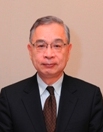東京大学大学院法学政治学研究科・法学部 グローバル・リーダーシップ寄付講座(読売新聞社)
2011年度 授業科目
1.「国連安保理と紛争解決1」
-
期間 2011年夏学期 2単位
担当 北岡伸一(大学院法学政治学研究科・法学部教授)
松浦博司(大学院法学政治学研究科客員教授、外務省地球規模課題総括課長)
内容

世界各地の紛争に対し、国連安保理がどのように取り組んでいるか、またどのように取り組んできたか、和平交渉や安保理交渉における交渉力学の働きを中心に研究する。参加者をスーダン、コンゴ民主共和国などいくつかのグループに分けて、国連その他のウェッブサイトから得られる情報を収集し、紛争の起源、現状、国連が果たしている役割について研究し、あるべき政策を考える。
北岡教授は2004-06年に日本政府国連代表部次席代表・特命全権大使として、松浦客員教授は同代表部参事官として、安保理の議論に参加した経験を持つ。
履修資格
法学部、法学政治学研究科総合法政専攻、公共政策大学院の学生
他学部、他研究科からの参加を認める。
2.「現代日中関係論」
-
期間 2011年夏学期 2単位
担当 高原 明生 (大学院法学政治学研究科・法学部教授)
宮本 雄二(大学院法学政治学研究科客員教授、前駐中国特命全権大使)
内容

 本演習は、①外交というものが歴史、文化、内外政治、経済、社会等の複合的要因に影響されて有機的に形成されるものであることを、日中関係の具体的ケースの検討を通じ、現場の視点から、自分で考え理解すること、②その結果として、外交ないし日中関係を総合的、包括的に理解する方法論を習得すること、並びに③外交の存在意義と日中関係を含む外交のあるべき姿について自分で考えることを目的とする。
本演習は、①外交というものが歴史、文化、内外政治、経済、社会等の複合的要因に影響されて有機的に形成されるものであることを、日中関係の具体的ケースの検討を通じ、現場の視点から、自分で考え理解すること、②その結果として、外交ないし日中関係を総合的、包括的に理解する方法論を習得すること、並びに③外交の存在意義と日中関係を含む外交のあるべき姿について自分で考えることを目的とする。履修資格
法学部、法学政治学研究科総合法政専攻、公共政策大学院の学生
他学部、他研究科からの参加を認める。
3.「中国の対外政策」
-
期間 2011年冬学期 2単位
担当 高原 明生 (大学院法学政治学研究科・法学部教授)
宮本 雄二(大学院法学政治学研究科客員教授、前駐中国特命全権大使)
内容
本演習は、「現代日中関係論」の継続の位置づけである。①外交というものが歴史、文化、内外政治、経済、社会等の複合的要因に影響されて有機的に形成されるものであることを、日中関係の具体的ケースの検討を通じ、現場の視点から、自分で考え理解すること、②その結果として、中国外交ないし日中関係を総合的、包括的に理解する方法論を習得すること、並びに③外交の存在意義と日中関係を含む外交のあるべき姿について自分で考えることを目的とする。
履修資格
法学部、法学政治学研究科総合法政専攻、公共政策大学院の学生
他学部、他研究科からの参加を認める。
4.「地球規模課題と日本」
-
期間 2011年冬学期 2単位
担当 北岡伸一(大学院法学政治学研究科・法学部教授)
鶴岡公二(大学院法学政治学研究科客員教授、外務省総合外交政策局局長)
内容

21世紀の世界が直面する課題について概観する。 はじめにこれまでの国際社会の基本的な枠組みについて概観する。 特に第二次大戦後の世界を論じる。 地球規模の課題の中で、気候変動、感染症、貧困・開発、テロ・海賊や平和構築について現状と今後の課題を論じる。 国際社会の課題に取り組む我が国の対応について論じ、今後の日本が果たすべき役割について考える。 今後の日本外交の基本理念として人間の安全保障を概説する。 現代の国際社会における意志決定の仕組みについて、G8サミットや国連の意志決定過程を論じる。 具体例として、2005年の首脳が参加した国連総会において採択された首脳成果文書の交渉過程や2008年のG8洞爺湖サミットの準備作業について概説する。 これら外交課題に日本政府が取り組む際の政策決定過程を概観する。政府関係機関、市民団体、マスメデイアなどの果たす役割について考える。 受講生は国際政治および国際法の基礎知識を理解していることが望ましい。英文資料も利用する予定。
履修資格
法学部、法学政治学研究科総合法政専攻、公共政策大学院の学生
他学部、他研究科からの参加を認める。
5.「Politics of World Trade」
-
期間 2011年夏学期 2単位
担当 大島正太郎(大学院法学政治学研究科客員教授、世界貿易機関(WTO)上級委員)
岩澤雄司(大学院法学政治学研究科・法学部教授)
内容

At the end of the Second World War, a new international economic order based on multilateralism was created which was embodied in the institutions such as the IMF and the GATT. This commitment to multilateralism reflected lessons learned from the 1930s where pursuit of narrow national interests based on protectionist motives worsened the international economic situation. The new system contributed in bringing about unprecedented economic growth in various regions of the world in the decades following its inception. Over the years, this system necessarily experienced various stresses and made adjustments by transforming itself in various ways, such as the move from the fixed currency rate system to the floating exchange rate system under the IMF in 1973, and the creation in 1995 of the WTO. In recent years, the world economy has seen further successes, such as demonstrated in the rapid growth of China and other emerging economies, but at the same time are experiencing serious tensions in the very foundation of the global economy. An obvious example is in the area of trade policy. While multilateral negotiations under the auspices of the WTO, or the Doha round, are still unable after ten year from its initiation to come to a successful conclusion, we are witnessing proliferation of regional and bilateral free trade agreements. The questions before us, then, are: What is happening on the global scene with respect to trade liberalization? Why is this so? and Where will this trend take us?
This course seeks to look into these questions, by looking at the WTO and the Doha round, developments in regional integration, and current proliferation of FTA agreements and negotiations, with a particular focus on the Asia Pacific arena.
(This course is in a sense, flip-side of the course given last semester by the same instructor under the course title “Modern Japanese Diplomacy”, in that while last semester the focus was on political security issues, this time the focus will be on trade and economic aspects of the current global political economy.)
履修資格
法学部、公共政策大学院の学生
他学部、他研究科からの参加を認める。